
Find Help
More Items From Ergsy search
-

Can I get Botulism from Botox Treatments?
Relevance: 100%
-

How does Botox work if it's related to botulism toxin?
Relevance: 82%
-

Can I get botulism from Botox treatments?
Relevance: 75%
-

Is Botox treatment expensive?
Relevance: 59%
-

Can anyone get Botox treatments?
Relevance: 55%
-

How often should I get Botox treatments?
Relevance: 53%
-

Can Botox cause serious health issues?
Relevance: 51%
-

What is Botox made from?
Relevance: 51%
-
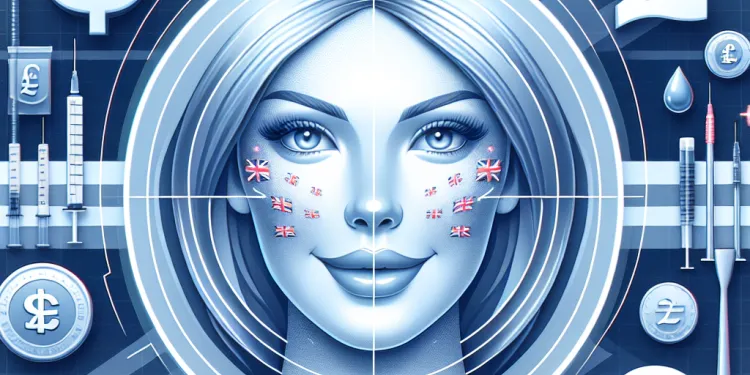
How should I choose a provider for Botox treatments?
Relevance: 51%
-

Is Botox safe?
Relevance: 47%
-

Is Botox safe?
Relevance: 46%
-

What is Botox?
Relevance: 46%
-
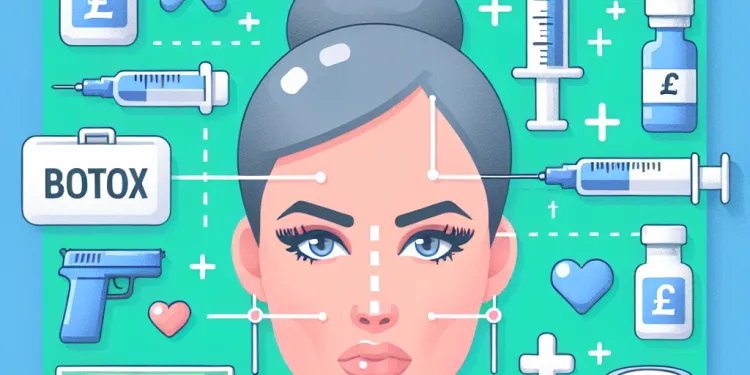
Is Botox vegan?
Relevance: 46%
-

What is Botox used for?
Relevance: 45%
-

Can Botox be used for migraines?
Relevance: 44%
-
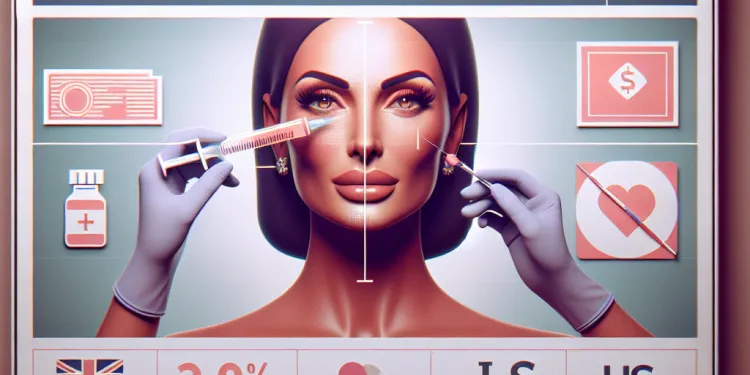
Does Botox hurt?
Relevance: 44%
-

How does Botox work?
Relevance: 43%
-
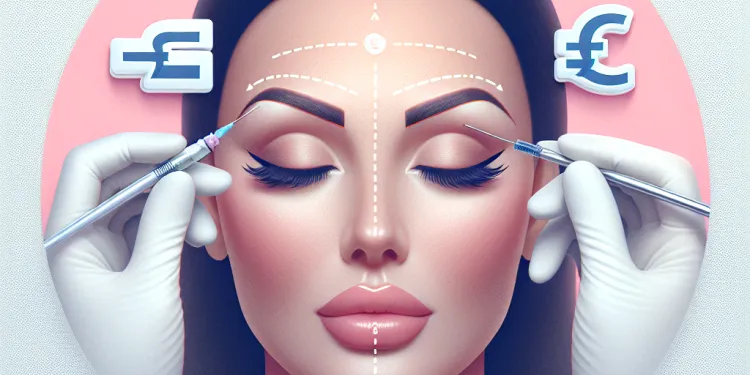
Can Botox lift my eyebrows?
Relevance: 43%
-

What areas can be treated with Botox?
Relevance: 43%
-

Who can administer Botox?
Relevance: 43%
-

Can Botox help with excessive sweating?
Relevance: 43%
-

What are the side effects of Botox?
Relevance: 42%
-

How long do the effects of Botox last?
Relevance: 42%
-
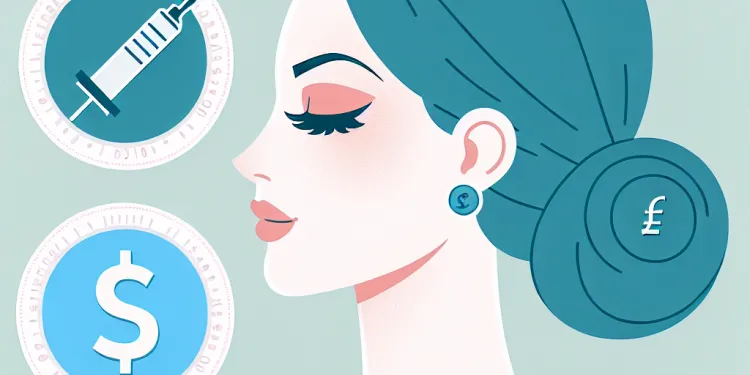
How much does Botox cost?
Relevance: 42%
-

What are the common uses of Botox?
Relevance: 42%
-

How long does Botox last?
Relevance: 42%
-

Can I get Botox while pregnant?
Relevance: 42%
-

Are there any long-term effects of using Botox?
Relevance: 41%
-

What are the side effects of Botox?
Relevance: 41%
-

How soon will I see results from Botox?
Relevance: 41%
-

Does Botox injection hurt?
Relevance: 40%
-

How long has Botox been used in medicine?
Relevance: 40%
-

Is it safe to go abroad for medical treatments such as botox?
Relevance: 40%
-

How should I prepare for a Botox appointment?
Relevance: 39%
-

Can Botox be used for treating conditions other than wrinkles?
Relevance: 39%
-

What precautions should I take before getting Botox?
Relevance: 39%
-

What should I do if I experience side effects after a Botox injection?
Relevance: 37%
-
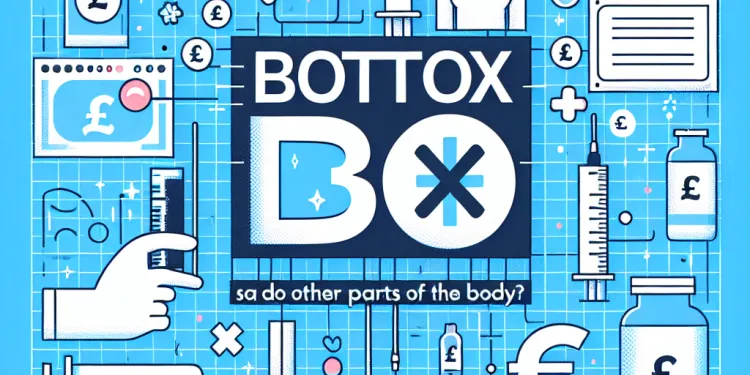
Can Botox spread to other parts of the body?
Relevance: 27%
-
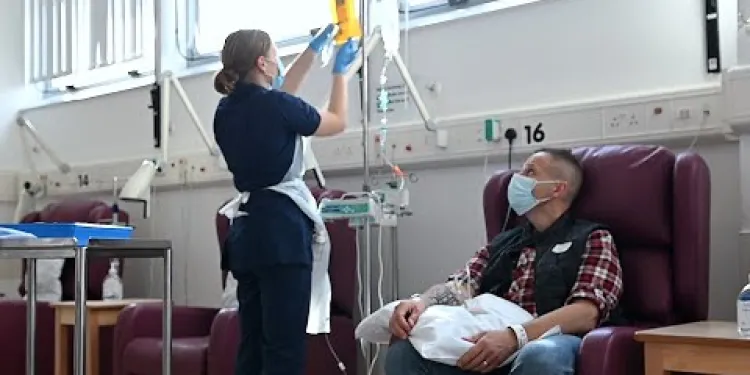
Having chemotherapy and other treatments in the Day Treatment Unit
Relevance: 20%
-

Is there a treatment for measles?
Relevance: 20%
Understanding Botulism and Botox
Botulism is a rare but potentially fatal illness caused by toxins produced by the bacterium Clostridium botulinum. These toxins can lead to muscle paralysis by blocking nerve function. On the other hand, Botox is a brand name for a drug made from a refined and diluted form of the botulinum toxin. It is commonly used for cosmetic procedures to reduce the appearance of facial wrinkles and medical treatments for conditions such as chronic migraines and muscle spasms.
The Risk of Botulism from Botox
One of the primary concerns among individuals considering Botox treatments is whether the procedure can lead to botulism. It is important to understand that Botox used in medical and cosmetic treatments is derived from a purified and very small dosage of the botulinum toxin. When administered by a qualified healthcare professional, it is safe and does not present a risk of botulism.
The doses used in Botox are strictly regulated and are thousands of times smaller than the amount needed to cause botulism. This ensures that the therapeutic applications of the toxin are separate from its toxicological effects. Therefore, receiving Botox injections in a clinical setting does not equate to being at risk of botulism.
Safety Measures and Professional Administration
In the UK, Botox treatments are performed by healthcare professionals who have been specifically trained in its application. This includes understanding the correct dosages, injection techniques, and managing any possible adverse effects. Regulations and guidelines are put in place to ensure the highest standards of safety and efficacy, reducing any potential risks associated with the use of Botox.
Furthermore, Botox treatments are strictly regulated by agencies such as the Medicines and Healthcare products Regulatory Agency (MHRA) to ensure that only safe and approved products are used in medical and cosmetic procedures.
Reassurance for Potential Patients
For those considering Botox treatments, it is crucial to seek out clinics and practitioners with a good reputation and the appropriate qualifications. This choice significantly lowers any risk factors related to treatment. Most adverse effects are minor, such as temporary bruising at the injection site or mild headache, and botulism is not a concern when following standard medical practice.
Conclusion
Overall, while botulinum toxin is indeed the basis for both botulism and Botox, the highly regulated use of Botox ensures it is safe for cosmetic and medical application. Patients in the UK can feel confident in undergoing Botox treatments without fear of contracting botulism, provided they opt for experienced and licensed practitioners. Continual advancements and stringent safety practices align to maintain Botox as a trusted treatment option.
Understanding Botulism and Botox
Botulism is a rare illness you can get from a germ called Clostridium botulinum. This illness is serious because it can stop muscles from moving. Botox is a medicine made from this germ, but it is safe. People use it to make wrinkles on their face less visible and to help with some health problems like headaches and muscle issues.
The Risk of Botulism from Botox
Some people worry they might get botulism from Botox. But Botox is safe because it's made with a tiny, purified amount of the germ. Doctors and nurses use it carefully for beauty and health treatments. The amount used is much smaller than what would cause botulism. This means Botox injections don't put you at risk of getting botulism.
Safety Measures and Professional Administration
In the UK, only trained doctors and nurses can give Botox treatments. They know the right amount to use and where to inject it safely. There are rules and guidelines to make sure Botox is safe. These rules keep treatments safe and effective.
Agencies like the Medicines and Healthcare products Regulatory Agency (MHRA) check that all Botox products are safe for people to use, both for looking better and for health reasons.
Reassurance for Potential Patients
If you are thinking about getting Botox, it’s important to find a clinic with a good reputation and qualified staff. This helps reduce any risks. Most side effects, like a small bruise or headache, are not serious. You won’t get botulism if you follow medical advice.
Conclusion
Botox and botulism are related but different. Botox is controlled and safe for beauty and health treatments. People in the UK can feel safe having Botox when it's done by experienced and licensed professionals. Every year, experts work to make Botox safer and keep it a trusted choice for patients.
Frequently Asked Questions
Can I get botulism from Botox treatments?
No, you cannot get botulism from Botox treatments. Botox is a purified form of botulinum toxin and is used in controlled, small doses to prevent this risk.
What is Botox made from?
Botox is made from botulinum toxin, a neurotoxin produced by the bacterium Clostridium botulinum, but it's formulated in a way that is safe for medical use.
How does Botox work if it's related to botulism toxin?
Botox works by blocking nerve signals to muscles, preventing them from contracting. This is the same action that causes botulism, but Botox is administered in very small, controlled doses that are safe.
What are the common uses of Botox?
Botox is commonly used for cosmetic purposes to reduce wrinkles. It is also used medically to treat conditions such as chronic migraines, overactive bladder, and spasticity.
Is Botox safe?
Yes, Botox is considered safe when administered by a qualified healthcare provider. It has been approved by health authorities for both cosmetic and medical use.
How long has Botox been used in medicine?
Botox has been used in medicine since the late 1980s. It was first approved for medical use by the FDA in 1989 to treat eye muscle disorders.
What are the side effects of Botox?
Common side effects of Botox include mild pain, swelling, or bruising at the injection site. There can also be slightly more serious effects like headache or flu-like symptoms.
Can anyone get Botox treatments?
Botox is generally safe for most people, but pregnant or breastfeeding women and people with certain neurological conditions are typically advised against it.
How is Botox administered?
Botox is administered through injections directly into the muscle or area of concern. The procedure is quick, and no anesthesia is required.
Can Botox spread to other parts of the body?
In rare cases, Botox can spread beyond the injection site, potentially causing symptoms of botulism, such as difficulty breathing or swallowing, but this is extremely uncommon with proper administration.
What precautions should I take before getting Botox?
Before getting Botox, inform your doctor about any medical conditions and medications you're taking. Avoid alcohol, anti-inflammatory medications, and blood thinners days before the procedure.
How long do the effects of Botox last?
The effects of Botox typically last between 3 to 6 months, after which the muscles gradually regain movement.
Can Botox be used for treating conditions other than wrinkles?
Yes, Botox is used to treat several medical conditions including cervical dystonia, excessive sweating, and chronic migraine, among others.
Does Botox injection hurt?
Most patients report only minor discomfort during Botox injections, comparable to a pinch or bug bite.
How soon will I see results from Botox?
Results from Botox typically become noticeable within a few days, with peak effects observed within one to two weeks after treatment.
Are there any long-term effects of using Botox?
When used appropriately, Botox does not have long-term harmful effects. Overuse can lead to muscle weakness.
Can Botox cause serious health issues?
Serious health issues from Botox are rare and often related to incorrect administration or unqualified practitioners. Always go to a certified professional.
What should I do if I experience side effects after a Botox injection?
Contact your healthcare provider if you experience severe or unusual side effects after a Botox injection such as difficulty breathing or swallowing.
Is Botox treatment expensive?
The cost of Botox treatment varies widely depending on factors like geographic location, the clinic's reputation, and the amount of product used. It can range from a few hundred to over a thousand dollars per session.
How should I choose a provider for Botox treatments?
Choose a provider with appropriate medical qualifications, experience in administering Botox, and positive patient reviews. Consultation before treatment is crucial.
Can Botox make me sick with botulism?
Sometimes people get Botox to help with wrinkles on their face. Botox is made from something called botulinum toxin.
Botulinum toxin can make you very sick, and this sickness is called botulism.
But when doctors use Botox, they use a very tiny and safe amount. It is usually safe and does not cause botulism.
If you are worried or feel sick after Botox, talk to your doctor. It is always good to ask questions and make sure you are safe.
You can also ask a family member or friend to help you understand. They can go with you to see the doctor too.
No, you cannot get sick from Botox treatments. Botox is made in a safe way. Doctors use only a tiny, safe amount.
What is Botox made from?
Botox is made from a chemical. This chemical comes from a tiny germ. It is safe when used by a doctor.
Tools like picture cards or videos can help explain more. Talking to a doctor can also help you understand better.
Botox is made from something called botulinum toxin. This comes from a germ called Clostridium botulinum. When doctors make Botox, they change it so it is safe to use to help people.
What is Botox and how does it work?
Botox is a special medicine that uses something called botulism toxin. But don't worry, it's safe when doctors use it.
Here's how it works:
- It helps relax muscles.
- Doctors use it to stop wrinkles and other problems.
If you want to learn more, ask a doctor or use a simple website with pictures and videos about Botox.
Botox stops muscles from moving by blocking nerve signals. It is like when a disease called botulism makes muscles stop working. But Botox is given in tiny amounts, so it is safe.
What is Botox used for?
People use Botox for different reasons. Here are some ways it is used:
- To make skin look smooth and remove wrinkles.
- To stop too much sweating.
- To help with muscle problems.
- To stop headaches called migraines.
Some people find pictures, videos, or other materials helpful in learning more about how Botox works.
Botox is a treatment that helps to make your wrinkles less visible. Wrinkles are lines on the skin that people get as they age.
Doctors also use Botox to help with other health problems. It can help people who have really bad headaches a lot of the time, known as chronic migraines. Botox can also help if someone needs to go to the toilet too often. This is called having an overactive bladder.
Some people have muscles that are too tight, which can make it hard to move. Botox can help these muscles relax. This is called spasticity.
If you need help reading or understanding this, you can use tools like text-to-speech programs to listen to the words. You can also ask someone to explain it to you, like a teacher or a parent.
Is Botox safe?
Botox is a medicine. It can help with wrinkles and other things.
Doctors say it's safe if used right. A special doctor should give it to you.
Here are some tips to help:
- Always go to a trained doctor.
- Check if they have done it before.
- Ask questions if you are unsure.
It can be good to ask a friend or family to help you with this.
Yes, Botox is safe if a doctor or nurse gives it to you. It is allowed to be used to help with how you look and for health reasons.
How long has Botox been used by doctors?
Doctors have used Botox since the late 1980s. It was first allowed for medical use in 1989 to help with eye muscle problems.
What can happen after you get Botox?
When you get Botox, you might feel a little bit of pain, or see some swelling or bruising where it was put in. Sometimes, people also get a headache or feel like they have the flu, which means feeling a bit sick and tired.
Who can get Botox?
Botox is usually safe for most people. But pregnant women, new mothers who are breastfeeding, and people with some brain or nerve problems should not use it.
How do you get Botox?
Doctors use a needle to give Botox. They put it in the muscle or spot that needs help. It is fast, and you do not need to be asleep for it.
Can Botox move to other parts of the body?
We want to know if Botox can go to other parts of the body after it is used.
After someone gets Botox, it mostly stays where the doctor put it.
Sometimes, some may move a little bit to nearby areas. But it does not go far in the body.
If you have questions, it's good to talk to a doctor. They can explain it more.
Tools to help:
- Ask questions to your doctor.
- Use apps or gadgets that help you read.
- Get help from a friend or family member when reading.
Sometimes, Botox can move to other parts of the body. This might happen after a treatment. It can cause problems like trouble breathing or swallowing. But this is very rare if Botox is used correctly by a doctor.
What should I do before getting Botox?
Thinking about getting Botox? Here are some easy steps to help you:
- Talk to a doctor. Ask any questions you have.
- Tell the doctor about any medicines you take.
- If you are pregnant or breastfeeding, ask the doctor if Botox is safe for you.
- Do not drink alcohol for 24 hours before. This helps stop bruising.
- Try not to take painkillers like aspirin a week before. These can also cause bruising.
If you find it hard to remember things, write these steps down or use a reminder app on your phone.
Before you get Botox, tell your doctor if you have any health problems. Also, tell your doctor about any medicines you are taking. A few days before you get Botox, do not drink alcohol. Do not take any medicine that stops swelling, and do not take blood thinners.
How long does Botox last?
Botox works for 3 to 6 months. After this time, your muscles start moving again.
Can Botox help with things other than wrinkles?
Botox can do more than just help with wrinkles. It can help with some health problems too. If you want to learn more, ask a doctor or nurse. They can explain how Botox might help you.
If reading is hard, try using tools like text-to-speech to listen instead. Picture books or videos might also help you learn more.
Yes, doctors use Botox to help with different health problems. It can help with neck muscle problems, too much sweating, and really bad headaches.
Does Botox injection hurt?
Getting Botox might feel like a quick pinch. Most people say it does not hurt much. A doctor or nurse can use a small needle. This helps make it hurt less.
If you are worried about it hurting, you can ask the doctor to use a cream or ice to make your skin numb. This can help stop any pain.
Most people feel a little bit of pain when they get a Botox shot. It feels like a small pinch or a bug bite.
Here are some things that might help:
- Take deep breaths to stay calm.
- Squeeze a stress ball in your hand.
- Tell the doctor if it hurts a lot.
When will I see results from Botox?
You might see some changes in a few days. Keep waiting and check again in about two weeks. It works differently for everyone.
Tip: If you're worried or have questions, ask a doctor or nurse for help. They can give you more information.
You will start to see Botox work in a few days. It works best about one to two weeks after you get it.
Does using Botox have effects that last a long time?
When people use Botox, they might wonder if it causes any effects that don't go away. It is important to ask a doctor if you have questions.
To help understand better, you can:
- Ask your doctor to explain.
- Use pictures or videos to learn more.
- Have someone read the information to you.
When used the right way, Botox is safe for a long time. If you use too much, it can make your muscles weak.
Can Botox be bad for health?
It is not common to have serious health problems from Botox. Problems usually happen if Botox is done wrong or by someone who is not trained. Always go to a trained expert for Botox.
What should I do if I feel bad after having a Botox injection?
If you feel unwell after your Botox injection, here’s what you can do:
- Tell the doctor who gave you the injection.
- Ask a loved one or friend to help you talk to the doctor.
- Rest and drink plenty of water.
- Use pictures or drawings to show how you feel.
- Write down how you feel and when it started.
It’s important to let others know how you feel. You can get more help by using tools like a symptom diary or speaking cards.
If you feel really bad or have strange problems after getting a Botox shot, like it's hard to breathe or swallow, tell your doctor right away.
Does Botox cost a lot of money?
The price of Botox can be different in many places. How much you pay depends on where you are, how well-known the clinic is, and how much Botox you need. It can cost a few hundred to more than a thousand dollars each time you get it.
If you need help understanding or remembering this, you can ask someone to read it with you, or use a text-to-speech tool to listen to it.
How do I pick someone to give me Botox?
Here are some tips to help you pick the right person for Botox:
- Look for a doctor or nurse with special training.
- Ask if they have done lots of Botox treatments before.
- Read reviews or ask friends for advice.
- Go to a clean and safe clinic.
- Ask questions if you are unsure about something.
Use tools like a friend, family member, or online reviews to help you decide.
Find a doctor who knows a lot about medicine and has given Botox before. They should have happy patients who say good things about them. Always talk to the doctor before getting the treatment.
Using pictures or videos about Botox can help. You can also ask someone you trust to help you understand what the doctor is saying.
Useful Links
This website offers general information and is not a substitute for professional advice.
Always seek guidance from qualified professionals.
If you have any medical concerns or need urgent help, contact a healthcare professional or emergency services immediately.
- Ergsy carfully checks the information in the videos we provide here.
- Videos shown by Youtube after a video has completed, have NOT been reviewed by ERGSY.
- To view, click the arrow in centre of video.
- Most of the videos you find here will have subtitles and/or closed captions available.
- You may need to turn these on, and choose your preferred language.
- Go to the video you'd like to watch.
- If closed captions (CC) are available, settings will be visible on the bottom right of the video player.
- To turn on Captions, click settings .
- To turn off Captions, click settings again.
More Items From Ergsy search
-

Can I get Botulism from Botox Treatments?
Relevance: 100%
-

How does Botox work if it's related to botulism toxin?
Relevance: 82%
-

Can I get botulism from Botox treatments?
Relevance: 75%
-

Is Botox treatment expensive?
Relevance: 59%
-

Can anyone get Botox treatments?
Relevance: 55%
-

How often should I get Botox treatments?
Relevance: 53%
-

Can Botox cause serious health issues?
Relevance: 51%
-

What is Botox made from?
Relevance: 51%
-

How should I choose a provider for Botox treatments?
Relevance: 51%
-

Is Botox safe?
Relevance: 47%
-

Is Botox safe?
Relevance: 46%
-

What is Botox?
Relevance: 46%
-

Is Botox vegan?
Relevance: 46%
-

What is Botox used for?
Relevance: 45%
-

Can Botox be used for migraines?
Relevance: 44%
-

Does Botox hurt?
Relevance: 44%
-

How does Botox work?
Relevance: 43%
-

Can Botox lift my eyebrows?
Relevance: 43%
-

What areas can be treated with Botox?
Relevance: 43%
-

Who can administer Botox?
Relevance: 43%
-

Can Botox help with excessive sweating?
Relevance: 43%
-

What are the side effects of Botox?
Relevance: 42%
-

How long do the effects of Botox last?
Relevance: 42%
-

How much does Botox cost?
Relevance: 42%
-

What are the common uses of Botox?
Relevance: 42%
-

How long does Botox last?
Relevance: 42%
-

Can I get Botox while pregnant?
Relevance: 42%
-

Are there any long-term effects of using Botox?
Relevance: 41%
-

What are the side effects of Botox?
Relevance: 41%
-

How soon will I see results from Botox?
Relevance: 41%
-

Does Botox injection hurt?
Relevance: 40%
-

How long has Botox been used in medicine?
Relevance: 40%
-

Is it safe to go abroad for medical treatments such as botox?
Relevance: 40%
-

How should I prepare for a Botox appointment?
Relevance: 39%
-

Can Botox be used for treating conditions other than wrinkles?
Relevance: 39%
-

What precautions should I take before getting Botox?
Relevance: 39%
-

What should I do if I experience side effects after a Botox injection?
Relevance: 37%
-

Can Botox spread to other parts of the body?
Relevance: 27%
-

Having chemotherapy and other treatments in the Day Treatment Unit
Relevance: 20%
-

Is there a treatment for measles?
Relevance: 20%


